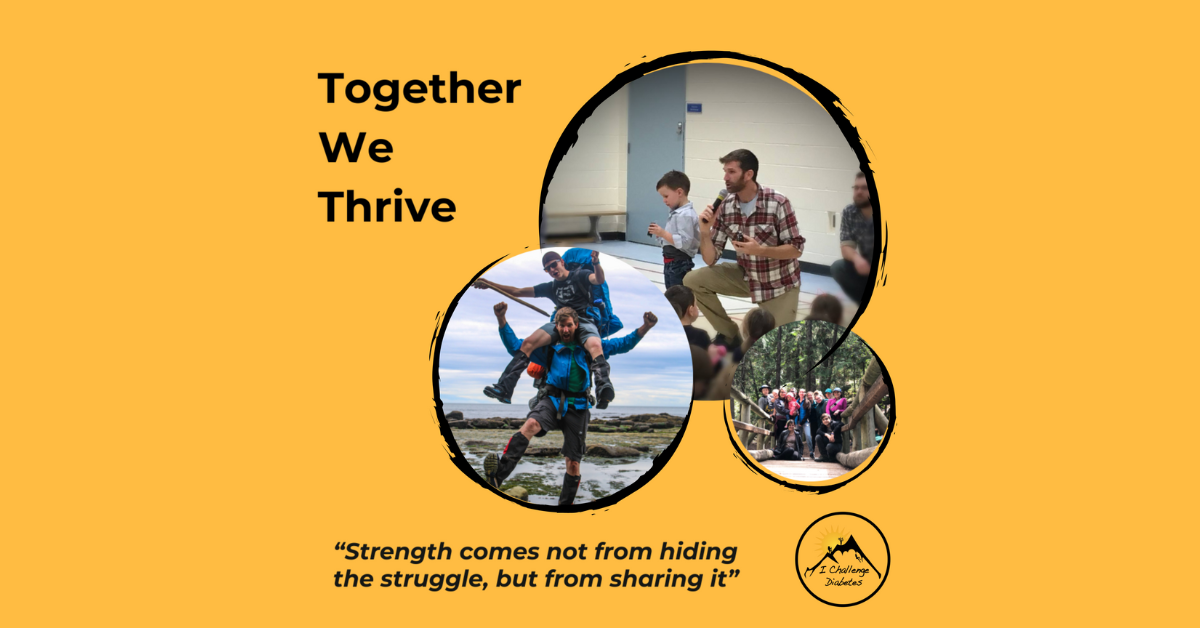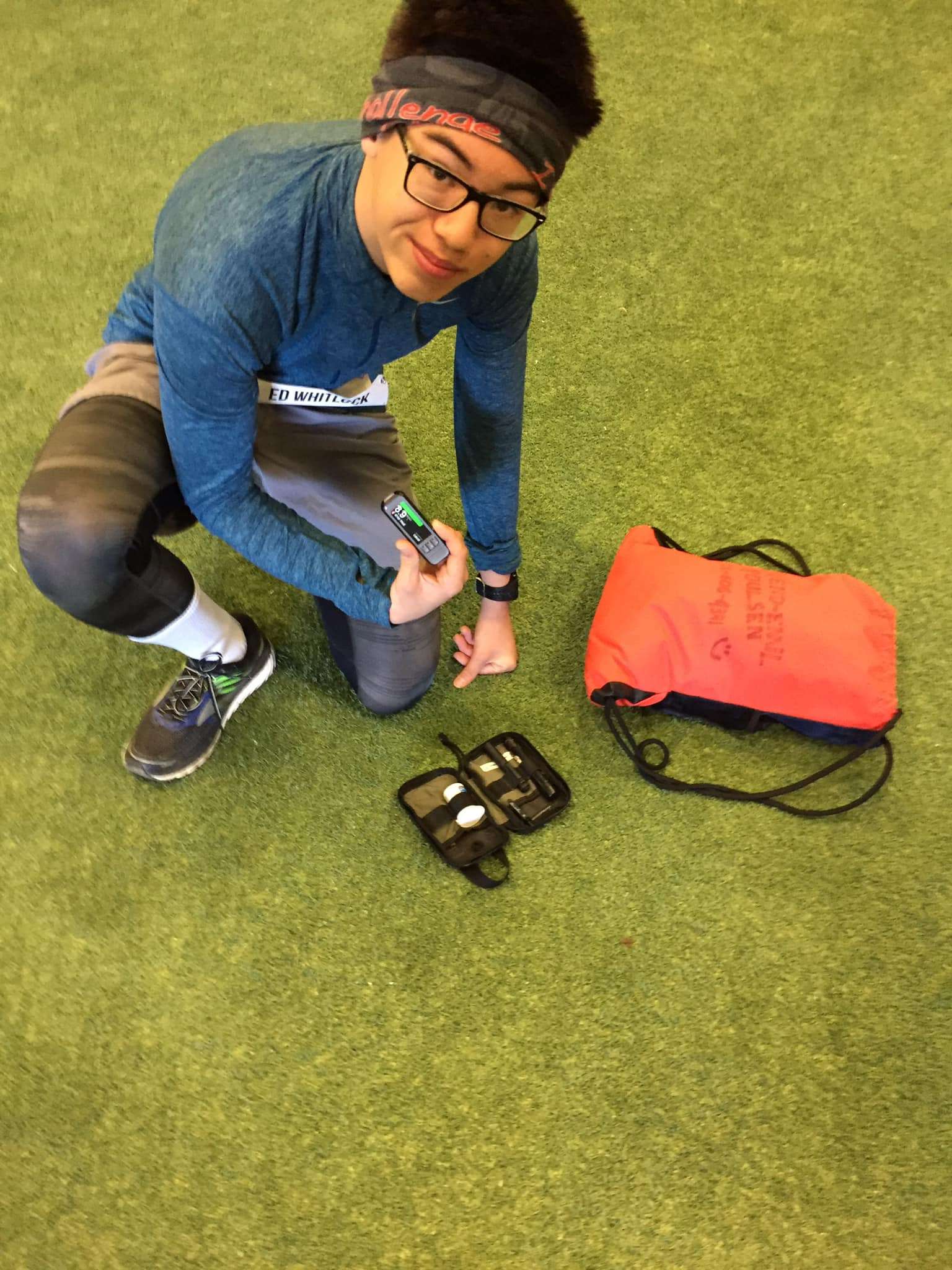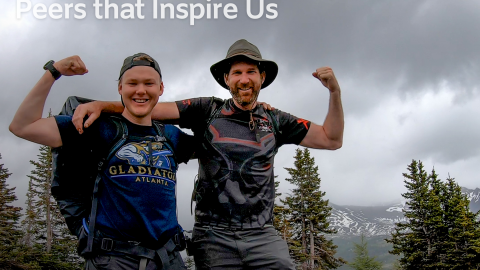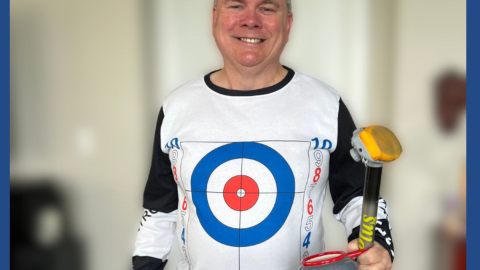Part 3 of 5: The Power of Community
When Chris Jarvis launched I Challenge Diabetes, he wasn’t just creating a support network; he was building the kind of community he wished he’d had as a young athlete living with type 1 diabetes (T1D). The lessons that shaped the foundation of ICD weren’t born out of success alone. They emerged from the struggles Chris faced as an athlete, the misunderstandings he endured, and the teammates who stood by him when others turned away.
Managing T1D while competing at the highest level of collegiate rowing wasn’t just physically demanding. It was isolating. Chris remembers the nights when his blood sugar would drop dangerously low while he was alone in his dorm room. Waking up in a foggy, dreamlike state, he’d find himself searching for something, sometimes a juice box, sometimes something nonsensical, like a plant in his room.
Eventually, the shakes and dizziness would make him aware enough to reach for his glucose tablets or juice. But those moments were terrifying, and they often cost him hours of sleep and recovery.
Despite managing his diabetes for years, Chris still struggled with consistency. Back then, diabetes management technology wasn’t what it is today. His insulin regimen was rigid, and the constant highs and lows meant he often had to sit out of workouts, a fact that some teammates saw as a weakness. While some used it as leverage to push him down the rowing hierarchy, others quietly inspired him to push through.
One of those teammates was Dan Walsh, a future Olympic rower for the U.S. team and two years ahead of Chris at Northeastern. Dan was relentless in his training, pushing himself through extra workouts to prepare for national team tryouts. Chris watched Dan’s work ethic and began to mirror it. If he missed a workout due to low blood sugar, he’d make up for it later, often staying longer at the gym or hitting the rowing machine solo. The extra work paid off.
But the real turning point for Chris came off the water. At Northeastern, Chris put his hand up to serve on the Student Athlete Advisory Council (SAAC), a committee where athletes gave feedback on the university’s athletic programs. He started small, attending monthly meetings, but soon stepped up as secretary, then co-chair of the council, and eventually chair of the entire conference. That leadership role opened the door to the Northeastern Center for the Study of Sport and Society, a program focused on using athletics as a force for social good.
Through the center, Chris was introduced to a new kind of teamwork, not the cutthroat competition of rowing, but the power of sports to build understanding and connection. He participated in outreach programs, visiting inner-city schools grappling with violence and racial tensions. He worked on programs for athletes with disabilities, guided by Eli Wolff, a fellow athlete living with a chronic illness. These experiences gave Chris a new understanding of what it meant to create a supportive environment, not just within a team, but within a broader community.
One moment in particular stuck with Chris. During a disability sports workshop, another student athlete at Northeastern, a hockey player with type 1 diabetes, approached Chris. The hockey player was struggling with the same feelings of isolation and misunderstanding that Chris had faced. But instead of hiding his diagnosis, the player was open and honest about his challenges. That vulnerability struck Chris. He had spent years downplaying his diabetes, trying to push through it without letting it define him. But here was another athlete proving that strength came not from hiding the struggle, but from sharing it.
That realization became the foundation for I Challenge Diabetes.
Chris envisioned a space where athletes and young people with T1D could feel seen and understood, not as burdens or liabilities, but as strong, capable individuals navigating a difficult condition.
At ICD, sports aren’t just about competition; they’re a tool for connection. Participants face physical challenges together, but the deeper goal is to create a space where they feel comfortable opening up about the mental and emotional challenges of living with T1D.
Reflection is another core value Chris carried from his rowing career into ICD. He learned early on that success wasn’t about avoiding failure; it was about understanding it. “My success as an athlete was dependent on reflection,” Chris said. “There were times I wanted to quit, but I would reflect on it and ask myself if I should listen to the coach who’s trying to push me out or the teammates who are telling me they need me.” That same mindset shapes ICD’s programs.
Participants are encouraged to reflect on their challenges and victories, understanding that setbacks are part of the process, not signs of weakness.
Chris’s athletic career gave him more than just medals and accolades. It taught him that trust and teamwork are built not in moments of victory, but in the quiet moments of struggle when someone stays behind to train with you, when a teammate believes in you even when you doubt yourself. That’s the heart of I Challenge Diabetes. It’s not about proving the doubters wrong. It’s about proving to yourself that you’re capable, even when the odds are stacked against you. ICD wasn’t created just to help others manage diabetes. It was created to give people living with T1D a place where trust is earned, challenges are faced together, and no one feels like they have to fight alone.
This is part three of a five-part series, detailing Chris Jarvis’ story, and the origins of I Challenge Diabetes, compiled and written by ICD intern Hodan Abdi. Check out parts one and two here!









